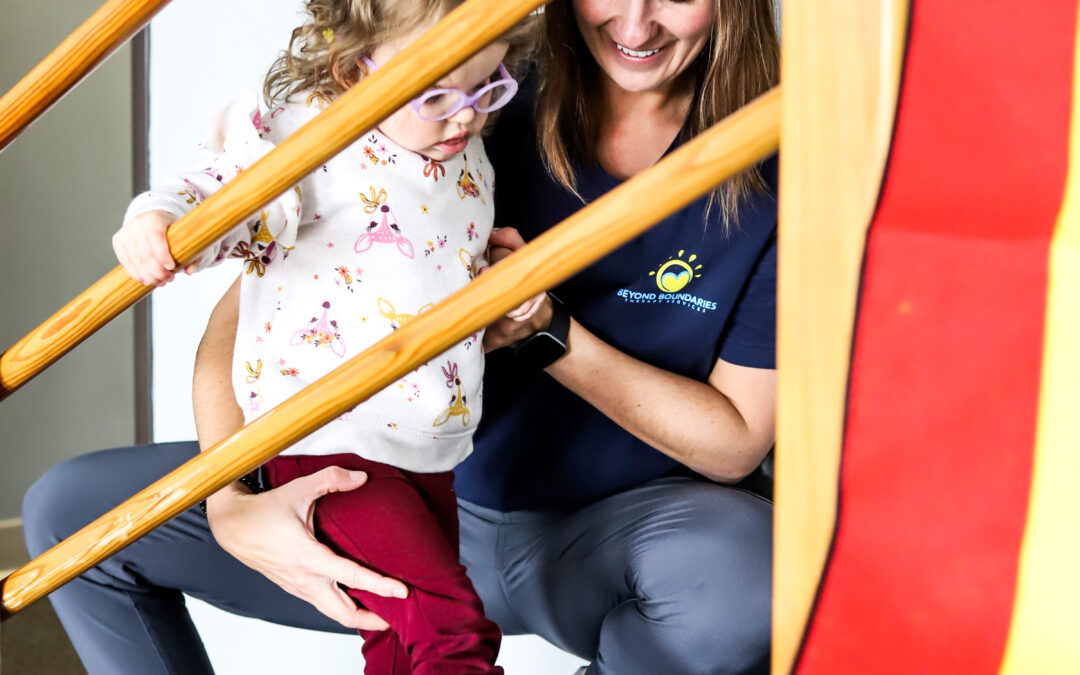Children are constantly growing, moving, and learning; it can seem like they’re learning milestones and doing new things every day!
But as parents, it can be challenging and stressful to be unsure if your child is doing things when they are “supposed” to. And that includes gross motor skills.
So, what are gross motor skills?
Gross motor skills are the important first steps in your child developing their muscle groups. They involve larger movements of the arms, legs, feet, and “trunk” (middle) of the body in order to move the body. They are a vital part of children learning to balance, move, and explore their world.
As physical therapists, we like to think of there being a window of when we’d like to see certain skills performed, or a child showing signs that they are nearing the skill.
Below, we dive into gross motor skill development and potential signs that your child could benefit from a screening or evaluation by a pediatric physical therapist. With the goal being to see why those skills haven’t been achieved, or for guidance to meet those goals.
Gross Motor Skills: Things to Look Out For
0-3 Months
- Head turn preference (if baby turns their head only one way)
- Difficulty tolerating tummy time
- Head shape/flat spots
3-6 Months
- Difficulty tolerating tummy time
- Not yet showing signs of wanting to roll
- Difficulty tolerating sitting with support
- Residual head shape concerns
6-9 Months
- “Happy sitters” (child seems content to just sit and not explore)
- Butt scooters
- Not yet getting into seated position independently
- Difficulty pivoting while on belly
- Not yet getting up to hands and knees or rocking
9-12 Months
- Lack of environmental exploration
- Not yet pulling self up to stand by 12 months
- Difficulty tolerating weight-bearing through legs
1-2 Years
- Falling frequently while walking
- Not yet climbing up/down stairs and onto surfaces
- Falling over when throwing balls
2-3 Years
- Difficulty jumping down or forward
- Not yet running
- Difficulty balancing on one foot
- Difficulty walking up/down stairs alone
- Falling over while walking up/down hills or inclines
- Falling while attempting to kick a ball
3-4 Years
- Not yet balancing on one foot
- Difficulty catching a ball
- Not yet mimicking or attempting animal walks or somersaults alone
- Not yet showing signs of one-footed hopping
- Difficulty galloping
- Falling over while running, throwing and catching, kicking
- Not yet jumping down from a step alone
- Difficulty walking on a line without stepping off of it
If you still have concerns at any stage of your child’s development, Beyond Boundaries is here for you! We offer free screenings.

